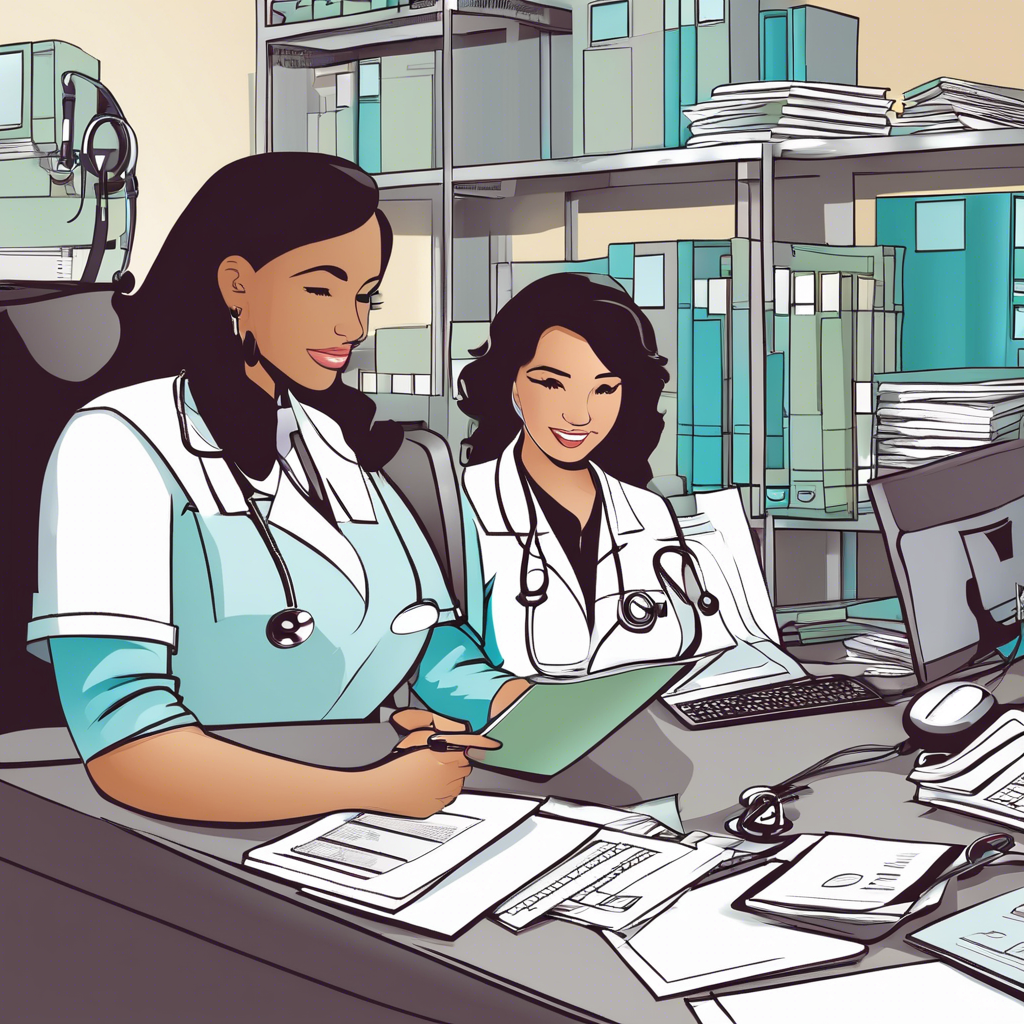Medical billing and coding are essential components of the healthcare system, ensuring accurate and timely payment for medical services rendered to patients. Medical billing involves submitting and following up on claims with health insurance companies to receive payment for services provided by healthcare providers. On the other hand, medical coding involves translating medical procedures and diagnoses into universally recognized alphanumeric codes for billing purposes.
A medical billing and coding course provides individuals with the necessary knowledge and skills to pursue a career in this field. These courses cover various topics, including medical terminology, anatomy, physiology, healthcare laws and regulations, insurance claim processing, and coding systems such as ICD-10 and CPT. Students also learn about electronic health records (EHR) systems and medical billing software used in healthcare settings.
One of the key benefits of taking a medical billing and coding course is the potential for a rewarding career with job stability and growth opportunities. As the healthcare industry continues to expand, the demand for skilled medical billing and coding professionals is on the rise. Graduates of these courses can find employment in various healthcare settings, including hospitals, physician’s offices, clinics, insurance companies, and medical billing companies.
In addition to job opportunities, pursuing a career in medical billing and coding can also lead to a competitive salary. According to the Bureau of Labor Statistics, the median annual wage for medical records and health information technicians, which includes medical billers and coders, was $42,630 in May 2020. With experience and additional certifications, professionals in this field can earn even higher salaries.
Moreover, a medical billing and coding course provides individuals with a flexible career path. Many medical billing and coding professionals have the option to work remotely from home, offering flexibility in terms of work hours and location. This can be particularly appealing to individuals looking for work-life balance or those who prefer a remote work environment.
Furthermore, medical billing and coding courses are designed to be accessible to individuals from diverse educational backgrounds. Whether you are a recent high school graduate, a career changer, or a healthcare professional looking to expand your skill set, there are courses available to suit your needs. Some programs may require a high school diploma or GED, while others may have specific prerequisites related to healthcare or computer skills.
Additionally, medical billing and coding courses often include hands-on training and practical experience to prepare students for the demands of the job. This may involve simulated coding exercises, practice with real-world medical records, and opportunities to work with medical billing software used in the industry. By gaining practical experience during the course, students can feel more confident and competent in their abilities upon entering the workforce.
Another advantage of enrolling in a medical billing and coding course is the potential for professional advancement and specialization. Graduates can pursue additional certifications in specific areas of medical coding, such as inpatient coding, outpatient coding, or medical auditing. These certifications can enhance their skills and marketability in the job market, leading to better career prospects and higher earning potential.
Furthermore, medical billing and coding professionals play a crucial role in ensuring the financial health of healthcare organizations. By accurately documenting and coding medical procedures, they help healthcare providers receive timely reimbursement for services rendered. This not only benefits the providers but also contributes to the overall efficiency and effectiveness of the healthcare system.
Moreover, the skills acquired through a medical billing and coding course are transferable to other areas of the healthcare industry. Graduates may choose to specialize in medical billing or coding, or they may explore related career paths such as medical transcription, health information management, or healthcare administration. The knowledge and expertise gained in a medical billing and coding course can open doors to a variety of career opportunities within the healthcare field.
Additionally, staying current with developments in medical billing and coding is crucial for professionals in this field. Healthcare laws, regulations, and coding guidelines are constantly evolving, requiring medical billers and coders to stay informed and up to date. Continuing education and professional development opportunities are available to help professionals stay abreast of changes in the industry and maintain their skills and knowledge.
Furthermore, the demand for skilled medical billing and coding professionals is expected to grow in the coming years, driven by factors such as an aging population, advances in medical technology, and changes in healthcare regulations. This creates a favorable job market for individuals considering a career in medical billing and coding, with ample opportunities for employment and career advancement.
In conclusion, a medical billing and coding course offers individuals a pathway to a rewarding and stable career in the healthcare industry. With comprehensive training in medical terminology, coding systems, and healthcare regulations, graduates are equipped to pursue various job opportunities in healthcare settings. The skills and knowledge acquired through these courses not only prepare individuals for a successful career but also contribute to the efficient operation of the healthcare system as a whole. If you are considering a career in healthcare administration or looking to enter a growing field with promising job prospects, a medical billing and coding course may be the right choice for you.
